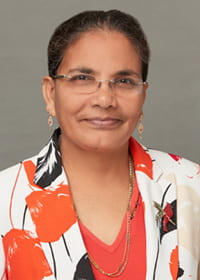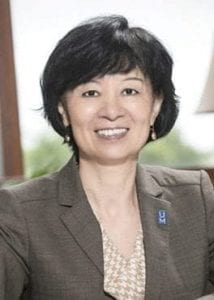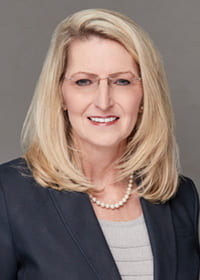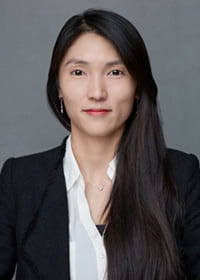The Loewenberg College of Nursing’s PhD Program focuses on preparing nurse scientists and scholars to address issues of health disparities and inequities. Using the UofM Global online platform, the program brings together 11 diverse PhD students from across the United States and the globe to do so. Led by Dr. Lin Zhan, professor and LCON dean, faculty teach, guide, and mentor PhD students.
“Faculty in the PhD Program are dedicated, bringing state of the art knowledge, multiple ways of knowing to cultivate PhD students for scientific inquiries to master a broad knowledge of philosophy of science and nursing science, theories and middle range theory knowledge of the nursing discipline, health equity research, and scientific methodologies.” Dr. Zhan said.
The COVID pandemic brings challenges to PhD students as many of them are nurses and demand for caring and fighting for COVID pandemic is high. Dr. Zhan worked with PhD faculty to bring “high touch” human connection and consideration in support of PhD students.
Dr. Annapoorna Mary, director of the PhD program, said students many of the students work in clinical areas and their work demands, of course, increased. With these new challenges of balancing work and study, it was important to be accommodating, which required extensions to assignments and understanding from professors.
“A flexible and feasible approach was adopted for due dates when required,” Dr. Mary said. “Our method of instruction is via UM Global, which we enhanced with individual student guidance through meetings on Zoom.”
Dr. Marie Gill, associate professor, said to promote successful learning during these times, she collaborated with her students early to revise assignment due dates to reduce stress.
“As a faculty member teaching in a global PhD program amid the pandemic, my first concern was how students were coping and how to modify course assignments to best meet students’ needs and facilitate learning,” Dr. Gill said.
According to Dr. Genae Strong, associate professor, the pandemic set forth a new paradigm, creating a need for more synchronous online instruction. It is important that we continue improving upon the past to create increasingly better experiences for students in the future. “So, learning from our successes as well as our failures will inform future inquiry regarding the impact on online education. We were not only flexible but malleable given the enormous challenges,” said Dr. Strong.
Dr. Sohye Lee, assistant professor, noted that flexibility and encouragement helped PhD students make progress in their courses and the program. “Our PhD students are mostly working full-time in academic and clinical settings. Therefore, they are experiencing all kinds of difficulties and challenges, such as time management, responsibilities for school, work, and family, due to the COVID-19 pandemic,” Dr. Lee said.
“As we guide students in the research seminar course, rather than using the online discussion board, we hold a weekly 1.5 hour zoom meeting with the group as well as sometimes with each individual student to outline and think through purpose, statement of the problem, research questions, hypotheses, study design from data collection to analysis. Questions are answered, students are challenged to think, rethink, and search and research. We are indeed so proud of our first cohort five students – they are adaptive, resilient, courageous, and progressive despite the stressful time of COVID Pandemic,” said Dr. Zhan. “When diversity and inclusion are integrated in an educational environment, intellectual dialogue and debates occur, diverse perspectives are broadened, scientific minds are cultivated.”
- Dr. Lin Zhan
- Dr. Marie Gill
- Dr. Genae Strong
- Dr. Sohye Lee








